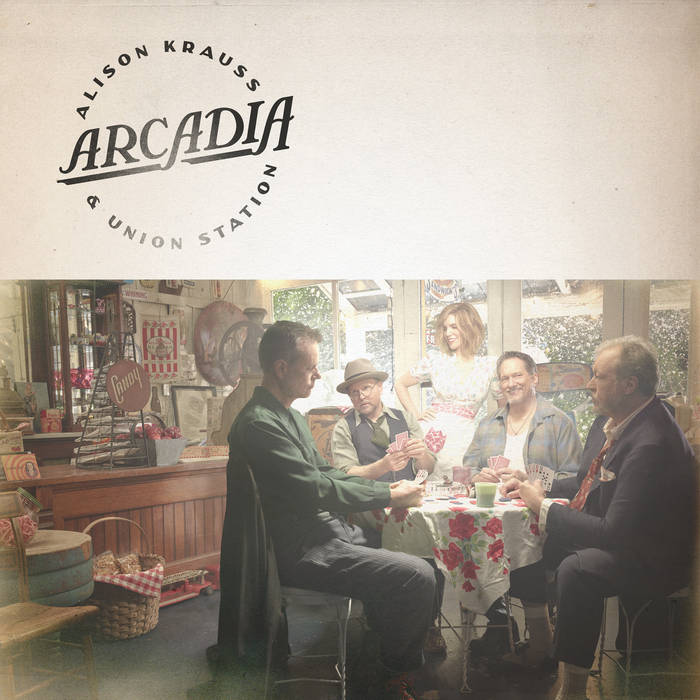Alison Krauss & Union Station "Arcadia" Album Review
- Paul Fitzgerald

- Jul 4, 2025
- 3 min read

After more than a decade of silence, Arcadia marks a welcome and stirring return for Alison Krauss & Union Station. Released in March 2025, the album is a carefully woven tapestry of historical ballads, emotional confessionals, and masterful musicianship. True to their tradition, the band delivers not just bluegrass, but a mature and emotionally resonant form of Americana. Arcadia doesn’t seek to dazzle with speed or technical wizardry—though it easily could—but instead chooses to move the listener slowly, deeply, and deliberately.
The album is bookended by two emotional poles: it opens with the solemn "Looks Like the End of the Road," written during the pandemic, where Krauss's signature voice floats like a ghost through stripped-back strings, and ends with "There’s a Light Up Ahead," a hopeful benediction that lifts like sunrise after a long night. This intentional symmetry—despair leading to hope—is emblematic of the album’s thematic architecture. Each track flows into the next with natural ease, forming a cohesive whole that’s meant to be listened to in sequence.
One of the most significant changes on Arcadia is the addition of Russell Moore (formerly of IIIrd Tyme Out) as a co-lead vocalist. His baritone brings a new emotional texture to the band, particularly in tracks like “The Hangman” and “Granite Mills.” “The Hangman,” an adaptation of Maurice Ogden’s poem, is chilling in its minimalism—just voice, piano, and sparse acoustic guitar—while “Granite Mills” recounts the 1874 mill fire with operatic weight. Moore’s delivery is so commanding that it doesn't just complement Krauss's vocals; it redefines the dynamic of the band.
That’s not to say Krauss takes a backseat. Her performances on “The Wrong Way,” “One Ray of Shine,” and “Forever” showcase her inimitable vocal control—glassy, aching, precise. On “Richmond on the James,” a Civil War ballad told from a dying soldier’s perspective, she sounds fragile yet unwavering, embodying both character and narrator with haunting clarity. It’s storytelling through tone, as much as lyric.
Instrumentally, Arcadia is as elegant as it is restrained. Jerry Douglas’s dobro work is less flashy than in past records but more emotionally nuanced, weaving subtle melancholy through tracks like “Snow” and “Granite Mills.” Ron Block’s banjo, Barry Bales’s bass, and Stuart Duncan’s fiddle create textures that range from sparse to lush. This is an album where space matters—every note feels placed, not just played.
Lighter moments arrive midway through with tracks like “North Side Gal,” an R&B-tinged barn burner led by Moore, full of fiddle licks and rhythmic joy. It offers necessary contrast without breaking the emotional tone of the album. “Snow,” another standout, blends old-timey lament with spiritual renewal, sounding timeless and immediate all at once.
Arcadia has been widely praised for its emotional maturity and sonic cohesion. Critics from outlets like PopMatters, Folk Alley, and Mojo have hailed it as a career-defining work, with particular praise for its production choices, narrative depth, and the addition of Moore. Fan communities, too, have embraced the album with enthusiasm, pointing to “Granite Mills,” “Richmond on the James,” and “The Hangman” as instant classics.
Ultimately, Arcadia feels like both a homecoming and a step forward. It honors the band’s bluegrass roots while reaching into deeper, darker territory—both historically and emotionally. There’s nothing flashy or modern for its own sake; rather, there is timeless craftsmanship, quiet intensity, and a reverence for story. Whether you’ve followed Alison Krauss & Union Station for decades or are just discovering them now, Arcadia offers something rich, thoughtful, and deeply human.










